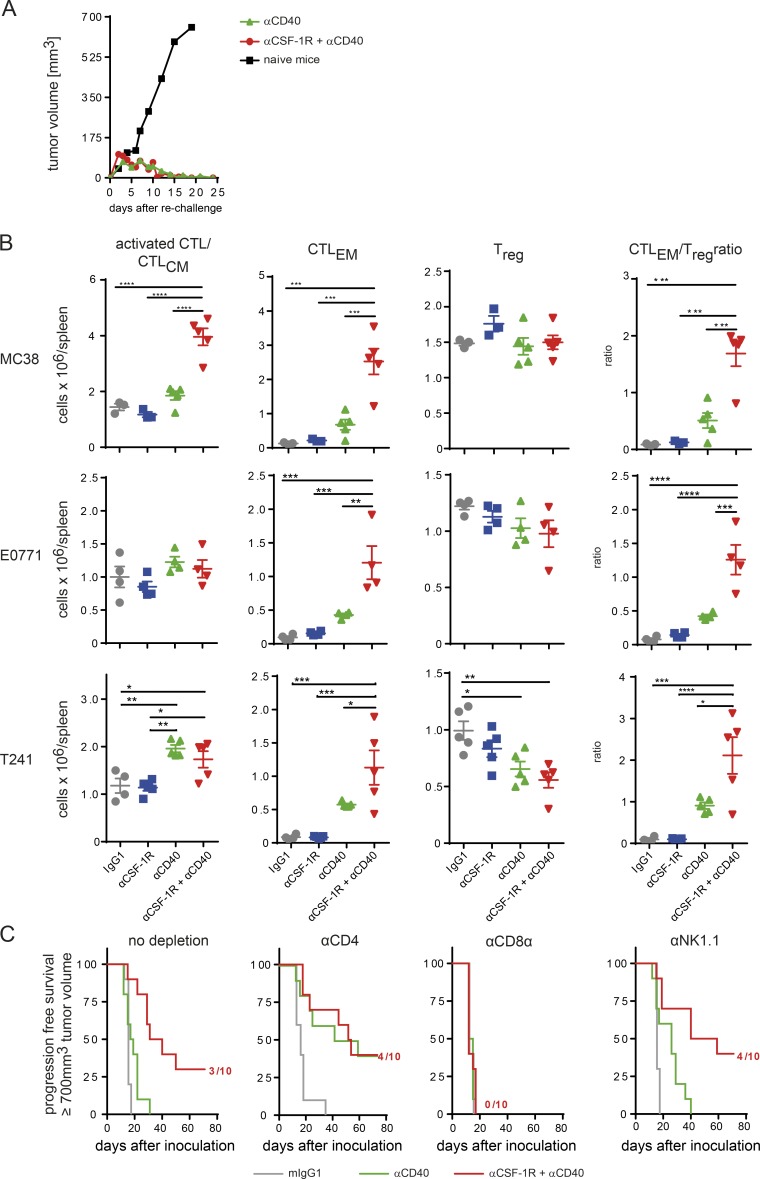Figure 4.
Tumor rejection by αCSF-1R+αCD40 combination depends on CD8+ T cells. (A) Rechallenge of tumor-free mice upon αCD40 or αCSF-1R+αCD40 leads to rapid rejection of MC38 tumors. Mice were rechallenged with 5 × 106 MC38 tumor cells into the contralateral flank from the first tumor, and tumor volume was monitored. Data are pooled from four rechallenge experiments (total n = 5 naive mice, n = 7 αCD40, and n = 47 αCSF-1R+αCD40). (B) MC38, E0771, and T241 tumor–bearing mice were treated with mIgG1 weekly, αCSF-1R weekly, αCD40 once, or αCSF-1R weekly + αCD40 once, and splenocytes were analyzed on day 10. CD8+ T cells were analyzed for effector memory status (CTLEM) or activated/central memory (activated CTL/CTLCM), and the number of FoxP3+ T reg cells was assessed by flow cytometry. Graphs show means ± SEM, statistical analysis by one-way ANOVA, and Tukey correction with n = 3 to 5 per group as depicted from one out of a minimum of two independent experiments. (C) Rejection of MC38 tumors is mediated by CD8+ T cells. MC38 tumor–bearing animals were treated with depletion antibodies against CD4+, CD8+ T cells, or NK cells starting on days −3 and −1 before therapy with mIgG1, αCD40, or αCSF-1R+αCD40 on day 0. An additional three doses of depleting antibodies were given at days 1, 4, and 7. Mice were graphically censored once the tumor sized reached ≥700 mm3, and numbers in graphs indicate amount of tumor-free mice within the specific group (n = 10 for all groups depicted). Data depicted are exemplary from two independent experiments. *, P < 0.05; **, P < 0.01; ***, P < 0.001; ****, P < 0.0001.

